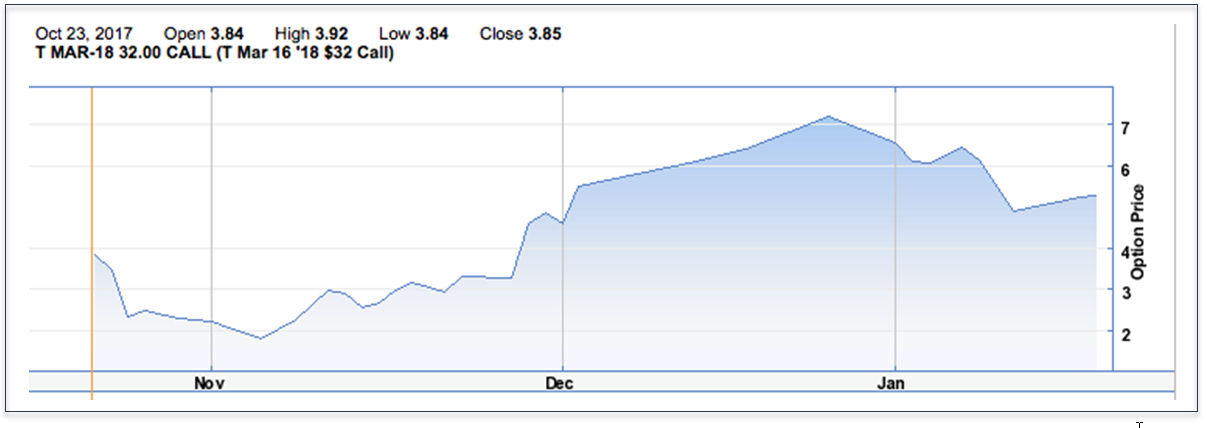After 20 years of trading options, I’ve heard just about every excuse in the book.
And believe it or not, they get even more ridiculous as the years go by.
- They’re too hard to understand.
- They’re too expensive. It’ll cost me far too much money.
- They’re only for professionals with years of experience.
- They take too much time to learn and execute (my favorite)
- Or, 90% of options expire worthless. That’s too much risk for me.
They’re as ridiculous as they sound.
They’ve all been dispelled, including the one about 90% expiring worthless. In fact, only about 20% expire worthless in the end. And usually you’d use stops to protect yourself.
Truth is — once you put the fears to rest with options trading, you stand to make a great deal of money. Not only can you profit from a stock that move up, down, sideways, or not at all, you can actually make more money as compared to a stock.
That’s because options afford you leverage.
Look at AT&T (T) for example. Let’s say you bought the stock at is November 6, 2017 low at $32.50. When it ran from a high of $38.50, you made a profit of 18%. Great. However, had you bought the AT&T February 16, 2018 32.50 call option, which traded at $1.70 on November 6, 2017, you could have made a profit of 212% at $5.30 a contract.

The Inflation Report – Free eBook
The markets are in a time of chaos, we’re seeing numbers we have not seen in 40 years, and panic has ensued… That is why our team has prepared this inflation report, using fundamental concepts used successfully for decades.
Look at it another way. Let’s say you wanted to buy 100 shares of AT&T at $32.50.
It would cost you $3,250. When it ran to $38.50, you were up a few hundred dollars. At the same time, you could have controlled 100 shares of the same asset for just $170 (or $1.70 x 100 shares in an options contract).
It’s actually very easy to understand.
If you think a stock is going up, you buy a call. If you think a stock is going down, you buy a put. Simple. An option is a contract that gives a buyer the right but not the obligation to buy or sell a stock, ETF or index.
If you thought AT&T would move higher – as it did – you would buy a call option.
Each of these contracts – which derive value from respective stocks, ETFs or indexes – control 100 shares, and remains good until a set expiration date (third Friday of your chosen strike month, or expiration month).
While stocks are safer with no expiration dates, they don’t afford you the opportunity that options can with simple leverage. Plus, options can often times allow you to spend much less money on a trade than a stock.
They’re not hard to understand. They’re actually cheaper than buying a stock. You did not need years of experience to wrap your head around the trade idea. It doesn’t take long to understand at all.
It’s up to you if you want to make real money in the market. If you do, options are your best route for the leverage you truly want.
